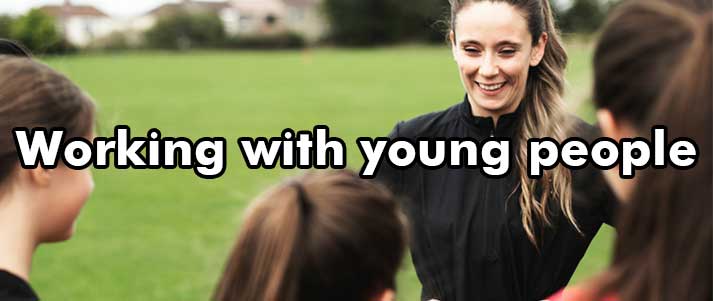Extracurricular activities that will improve your CV
There are loads of things you can do in your spare time to stand out as a job applicant. Filling your CV with these brilliant extracurricular activities will make your applications too good to ignore.

It's not enough to simply tell employers that you're interested in their industry – you need to show it. And the best way to do this is by boosting your CV while still at university with impressive extracurricular activities.
Employers are always interested in a candidate's experience. If you do lots of things in your spare time related to your chosen career, and you generally work hard to improve at your hobbies and interests, it will show that you're serious about your work and you're keen to learn.
With the suggestions in this guide, you can find the best extracurricular activities to help you land a job in your dream industry.
Extracurricular activities examples:
Top examples of extracurricular activities
Here are the best extracurricular activities to include on your CV:

Credit: Peter R Foster IDMA – Shutterstock
-
Volunteering with the National Trust
Volunteering with the National Trust is basically a win-win situation. Not only are you boosting your CV, but you're doing it by spending time in some of the most beautiful areas in the country.
Plus, as a volunteer, you'll also receive training, get your expenses covered and have free entry to most National Trust properties. Sounds pretty perfect, right?
Head over to the National Trust website to discover the opportunities near you.
-
Working on local farms
Volunteering or working at a farm isn't just useful if you want to work with animals – it can also be a great addition to your CV if you're interested in any kind of outdoorsy career.
Farm work can vary a lot depending on the sort of farm it is but (spoiler!) it tends to involve getting your hands dirty.
City dwellers will obviously have fewer options to choose from, but it's worth looking online to see if there's an urban farm in your area. Failing that, there may well be some stables nearby which are a bit more common in towns and cities than farms.
As a bit of inspiration, one student took extracurricular farming a step further and began running her own alpaca farm.
-
Volunteering with animal shelters
If you hope to work with animals in your future career, one of the best things you can do is offer your services as a volunteer at a local animal shelter.
Whether you're hoping to work as a vet, in zoos, as an animal conservationist or even within an animal charity like the RSPCA, the experience will really boost your CV.
Most shelters manage work experience students and volunteers on a branch-by-branch basis, so the best way to get more information is to get in touch with the charity directly. Their contact details can be found by a quick Google search for 'animal charities near me'.

Credit: Iryna Inshyna – Shutterstock
-
Working part-time at museums, galleries and stately homes
Visiting art galleries, museums and stately homes in your spare time is fantastic. But to get a good graduate job in the art and culture industries, it will really help if you work or volunteer at them.
Although a lot of cultural work opportunities for students are (annoyingly) voluntary roles, paid part-time jobs occasionally pop up. Keep your eyes peeled for job adverts on big institutions' websites, and reach out to smaller places directly to ask about vacancies.
If you work at a museum or gallery, you'll likely get invited to fun events like exhibition openings and talks. These events are great opportunities to meet industry leaders and get your name out there. Plus events like this usually have free food and drinks, so it'd be rude not to go, really...
-
Organising your own exhibitions
When looking for extracurricular activities in the art sector, you can also set up your own exhibition. Doing so will show loads of skills which employers look for, like teamwork, initiative, organisation, self-motivation and timekeeping.
There are a lot of different factors you'd have to think about, like hiring an exhibition space and sourcing, transporting and looking after the artworks/artefacts. With this in mind, it's a good idea to not do it completely by yourself, especially as revision and exams are still a priority.
Universities with a big focus on art will often have a society for curating exhibitions, so be sure to get involved if you can.
If there isn't a relevant society to join, you could always get a group of university friends together to work on it as a team. You can each have your own roles and responsibilities, and work together to organise an exhibition to be proud of.
Plus, if you feel confident, you could think about including your own work in the exhibition. Not only would this be great work experience, but it would also be an amazing opportunity to sell your own art.
We asked Francesca Fiumano, co-director of Fiumano Clase, about the importance of extracurricular activities for finding work in the art and culture industries. She said:

Extracurricular activities show the person looking at the CV that there is more to the candidate than their academic qualifications.
Showing a breadth of interests, both within art and culture but also on a wider scale, always makes a candidate look more interesting to prospective employees.
Travel, volunteering and holding down a part-time job whilst at university always impress me. They show independence and an interest in the world outside of the student bubble.
Francesca Fiumano, pictured with work by artist Sam Burford (image: Fiumano Clase)

Credit: Jacob Lund – Shutterstock
-
Starting your own business
Uni is the perfect time to start a business. You're unlikely to ever have a working schedule as flexible as you do now, so you can make the most of it by setting up and running a new business. We have loads of business ideas to start at university in case you're stuck.
By starting a business, you can prove that you've got what it takes to succeed in finance and consultancy. It will show that you're innovative, business-savvy and (a big one!) you can independently manage money.
It's even better if you can also demonstrate that you've got good people skills through the business. This is a very important part of succeeding in business, particularly as a consultant. For example, you could think about starting a tutoring business, or a social enterprise which helps the community in some way.
Plus, your new company could even bring in some passive income to help you get by while at university. One good way to make money from your business is by monetising its social media channels.
-
Improving at sports, music, cooking and more
Extracurricular activities don't always have to involve work or volunteering. Your hobbies can also be great additions to your CV.
Whatever your hobbies are, working hard to improve at them can really impress employers in the finance and consultancy industries. It will show that you have the key qualities to succeed in these sectors, like drive, proactiveness and self-motivation.
While it's super important to be a team player, you'll also need to prove that you aim to do well in pretty much anything you set your mind to.
Ideally, employers will want to see that you've got a wide range of hobbies outside of work.
Outside of academia, you might also be a talented musician, a sportsperson or a top student chef. By working hard to improve your interests and achieve results, you'll be able to show employers that you've got the success-driven mentality they're looking for.
-
Consulting and investment societies at university
If your university has a consulting or investment society, join them!
Societies are great opportunities to learn more about your industry and develop relevant skills. It's a massive bonus to also take on leadership roles within them, like club treasurer, social media manager or even president.
Your work in these societies will show more to employers than you might realise – not least, how serious you are about your chosen industry.

Credit: mentatdgt – Shutterstock
-
Student politics
If you've set your sights on politics, you'll need to start getting involved and getting noticed within the realm of student politics, ASAP.
Look for university debates, communities and societies which reflect your political views, and join as many as you can to get the ball rolling.
If you reckon you've got what it takes to become the next PM, you need to show that you consider politics to not just be a job, but a massive part of your life. That's what it'll be if you become a leading politician.
Get involved in student elections and political groups as well, and maybe even start your own website and blog about politics. Ultimately, you'll need to get your voice heard and show that you care.
-
Campaigning locally
If you're a loyal member of a political party, why not volunteer to help out with campaigning near election periods?
Whether giving out leaflets, donning a garish rosette or knocking on doors in rain or shine, campaigning is a great way to show your dedication. And, better yet, you can also make some great connections in the process.
You can also make money from general elections by working as a poll clerk. This is good for your CV and your student bank account. Ideal.

Credit: fizkes – Shutterstock
-
Working as a freelance translator
Speaking another language is already a really impressive skill in most industries. If you're hoping to use your language skills directly in your graduate job, working as a freelance translator while at uni will massively boost your CV.
It's a good money earner, and managing your time and money as a freelancer would be brilliant work experience.
You might already be acing a couple of languages, but the more you learn, the more money you can make as a translator. Our guide to quickly learning a new language can help.
-
Travelling
This one might sound too good to be true but travelling looks great on your CV. One of the reasons is that it encourages you to learn new languages.
The most effective way to learn a language is to immerse yourself in the country and culture. In cover letters and interviews, talking about your travelling experiences could really help you get noticed.
So, you can improve your language skills over a cheap summer holiday, on a study year abroad, or even a gap year. It's the perfect excuse for a getaway, if you ask us.

Credit: Kyle Wood - Flickr
-
Volunteering for St John Ambulance
As well as having a network of university societies, St John Ambulance has branches in the local community too.
By volunteering with St John Ambulance, you'll be given proper first aid training and can also get involved in helping staff out at events. Giving up your time to help people with St John Ambulance is sure to pay off for you in the future.
-
Working part-time in care and nursing homes
Getting the grades for degrees related to medicine is notoriously hard, but helping out in a care or nursing home in your spare time could help make your CV shine.
Working or volunteering part-time in a care home is a great way to build experience working with sick and vulnerable people, and it's an incredibly rewarding job. It also demonstrates your compassion, which is essential for a job in healthcare.
A simple online search will pull up thousands of care home opportunities for you to apply for. Similarly, there are also lots of charities, like Age UK, which allow you to become a befriender to keep an elderly person company for an hour or so each week.

Credit: Fer Gregory – Shutterstock
-
Volunteering in university arts programmes
Volunteer for as many arts programmes at university as you can. There'll likely be a huge range of opportunities in dance, theatre, music and drama. Pick your favourites, but also try stepping (or sashaying) out of your comfort zone and attempting something new.
Whether it's a backstage role, organisational role, or just getting involved in any way you can, experience is experience. The more projects you've worked on, the better it'll look on your CV.
Work and internship opportunities in these areas tend to be emailed around and posted up on noticeboards around uni, so keep an eye out for them. If nothing crops up, get in touch with your student union directly and they'll be able to point you in the right direction.
-
Community arts
It's a great experience to get involved in community arts. Since arts budgets are usually pretty minimal, there's always room for an extra pair of helping hands.
Take a walk down to your local community centre and enquire about the different arts programmes they're running and ask how you can get involved.
The opportunities tend to be pretty diverse, and being part of them can be really rewarding. These types of extracurricular activities can really help you find a job in the arts after graduation.

Credit: MIND AND I – Shutterstock
-
Developing new apps and products
One of the best ways to stand out in the science and technology industries is to use your skills to create something completely original.
You don't have to invent the new lightbulb or develop the next Facebook. As long as your ideas are new and interesting, and you're able to create a working product, you'll have lots of impressive things to discuss in interviews.
And, perhaps think about using your science and technology skills to make a mind-blowing CV. Have a look at these alternative CV examples, including a Google CV and an interactive video game one. The more creative and complex, the better.
-
Taking free online courses to learn new skills
Granted, you might not have the most free time during term if you're doing a science- or tech-related course. But, if you want to be productive during your holidays, you could think about learning new skills through online courses.
There are plenty of free online courses with qualifications on handy things like HTML, starting a business and Excel.
Alongside your degree, these courses will make your CV (even more!) full, varied and employable.

Credit: Rena Schild – Shutterstock
-
Sports clubs and societies
The first thing you should do to help kick-start a sports-related career is to sign up for sports clubs and societies.
For anyone wanting to work in sport and fitness, employers will likely take it as a given that you've joined some sports teams. It's best to join as many as you can, and don't be afraid to try a sport you've never done before. Showing you're willing to learn new sports will only go in your favour in job interviews.
If you're keen to get into coaching, plenty of sports teams and societies will be able to offer this opportunity. Or, for even more brownie points, you could run for a committee position.
-
Assisting with sports classes at your old school
If you want to work in sports (as a PE teacher, a personal trainer, or even a sports physiotherapist) have a chat with whoever runs the PE department at your old school. Schools want their alumni to succeed, so they should be happy to help you out.
Find out if they need any help supervising after-school PE clubs, as this is a perfect opportunity for you to get some experience working with young people in a coaching environment.
Just note that you may need to complete a DBS check first to prove you're a suitable person to be working with children.

-
Volunteering at schools
If working with young people is your goal, gaining some experience working with children is essential.
Head to your local school (primary or secondary, depending on which is more appropriate for the age you want to work with) and ask if you can help out. This could be at after-school clubs, as a supervisor at an event, or perhaps as a class assistant during PE lessons.
Again, you'll likely need to complete a DBS check before being allowed to work with children.
-
Working for charities and summer clubs
If there's nothing available in local schools, some charities and community centres run clubs for children, particularly during summer. Get in touch with your local community centres, or check local community Facebook groups to see what's going on.
You could also consider spending a few weeks at a US summer camp to gain work experience. Not only is this a fantastic summer job, but it's also a great way to become more confident working with children. To get you started, we've got a comparison guide to help you find the right summer camp for you.

Credit: OPOLJA – Shutterstock
-
Writing for your university paper
Whether your ambition is to become a published author, the next editor of Cosmo or a freelance copywriter, the key to making a living as a writer is to focus on developing your skills and portfolio as much as you can. It's super important that you put your work out there for people to read.
Most universities will have their own newspaper or magazine which is a great place to start. Hunt down the contact details of your student editor, get in touch and start submitting your ideas to them.
If you show you're keen and able to come up with ideas, they're likely to give you some of their time.
One of our former editors, Jess Murray, was the editor-in-chief of her university's student paper not long before she joined Save the Student. Here's what she had to say about student journalism:

Getting involved with the student newspaper is the best decision I ever made at uni!If you're after a career in journalism or the media it will give you invaluable training, as you'll get to source, pitch, write and edit stories.
I got to interview famous politicians and celebrities, report live on major political events and produce my own front page splashes.
In my final year I was elected to be the newspaper's editor-in-chief which was a year-long, full-time paid position, and it's opened so many doors for me since graduating.
Jessica Murray, former editor at Save the Student
-
Blogging and creating online content
There's a whole wealth of online writing opportunities that will look great on your CV – it's just a matter of seeking them out.
Using X (formerly Twitter) to find opportunities can really pay off, and it's also the perfect way to start building your professional profile (which will help you land a job once you graduate).
Joining writing communities on LinkedIn is also a great shout. Many businesses post there when they're on the hunt for contributors. Check out our full guide to using LinkedIn to get a job for more tips.
And as a nice little bonus, you can make money as a blogger too.
Start extracurricular activities at university
Now you're armed with a few ideas of how to get the ball rolling, it's time to start asking around to see what opportunities are out there.
We can't stress enough how important it is to get involved in extracurricular activities to supplement your education. Not only will it look great on your CV, but it'll also help you decide which career route is right for you.
Plus, the beauty of so many of these suggestions is that they're useful across a number of industries.
Taking part in any opportunities that you can outside of uni shows that you've got an excellent work ethic. And, depending on what activities you choose to do, they could highlight some of your other qualities, such as compassion, drive or communication skills.
All in all, as long as you keep up with all your uni work and don't overdo it, taking on extracurricular opportunities has so many benefits.
If you need any more ideas, here's how to boost your job prospects at uni.








